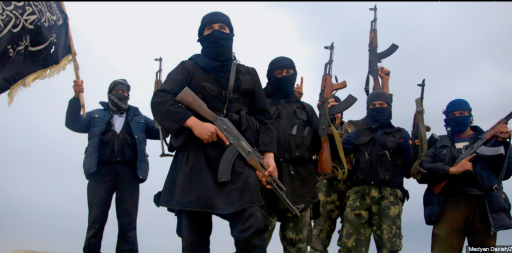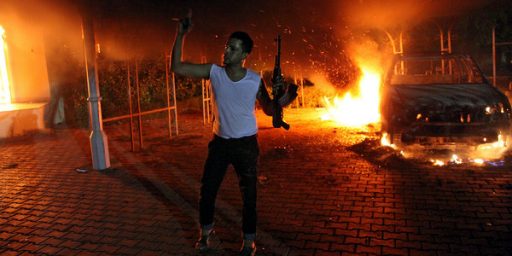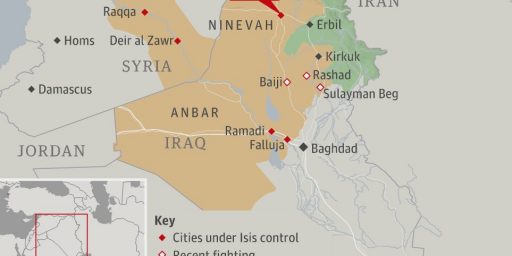Pentagon Takes Aim At Rank And File Of Al Qaeda
The U.S. is ramping up efforts against al Qaeda’s lower level terrorists after three years of focusing on taking out the leaders of the decentralized organization.
Pentagon takes aim at rank and file of al Qaeda (Washington Times, p. 1)
The Pentagon is discussing war-strategy changes for defeating Islamic terrorists that would place more emphasis on killing, capturing or discouraging midlevel operators who enable top al Qaeda leadership to function. Interviews the past week with Bush administration officials show that policy-makers are thinking the only way to ultimately win the war is to take down the lower-level operators who form the networks that support Osama bin Laden and scores of other al Qaeda lieutenants around the world.
President Bush, in assessing progress in the war, often cites the statistic that 75 percent of known al Qaeda leaders have been killed or captured. The strategy has been generally that if you cut off the head of al Qaeda, the body will eventually die. But more than three years into the war on terrorism, some officials are leaning toward a new policy that would place just as much emphasis on taking foot soldiers off the street. “DOD is pushing a strategy of going after the al Qaeda network,” a well-placed administration official told The Washington Times. “Getting the leadership alone is not going to do it.”
The source said Defense Secretary Donald H. Rumsfeld is “putting pressure on the system” to come up with new ideas, but has not endorsed a new plan.
One official, who asked not to be named, said the recent arrests of two American al Qaeda planners are examples of how the United States can methodically disable terrorist cells, leaving chieftains with few to carry out their orders. Another change being discussed in an ongoing interagency review by the Pentagon, State Department, CIA and White House National Security Council is a strategy that emphasizes this is a war that targets Islamic extremism, not Islam itself. “We have to convince Muslims that al Qaeda is their mutual enemy,” said the administration official.
Going after the leaders continues to make sense, in that the supply of those intellectually sophisticated enough to plan major operations has to be exceedingly limited. But since al Qaeda is not strictly a hierarchical group, merely taking out leaders far removed from those carrying out the operations is less effective than it would against a military or even a more traditional terrorist group.





